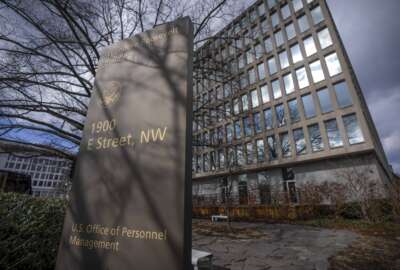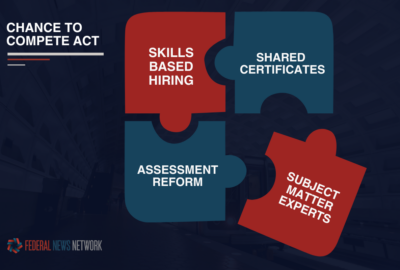MSPB: Holding fair, open job competitions isn’t easy in government
In a new report, the Merit Systems Protection Board says federal hiring managers are having trouble balancing rules meant to help veterans and other select groups...
In a new report, the Merit Systems Protection Board warned that a slew of rules meant to help veterans, people with disabilities or other groups get federal jobs can lead hiring managers astray, even as competition for federal positions, overall, remains fair and open.
Recent trends “threaten the principle of fair and open competition,” MSPB Chairwoman Susan Tsui Grundmann wrote in a preface to the report.
“These include: a proliferation of hiring authorities that restrict the size and composition of the applicant pool; overuse of restrictive hiring authorities and practices; the possibility that some managers may deliberately misuse hiring flexibilities to select favored candidates; and some human resources’ staff placing customer service to individual supervisors over service to the agency and its obligations to protect merit and avoid prohibited personnel practices,” she said.
The board said hiring managers have more control over the process than ever before. Increasingly, they are choosing to hire candidates under these special authorities rather than open competition to everyone. As evidence, it said, just 37 percent of jobs open in 2012 were filled competitively, down from more than half of all federal jobs in 2000.
In the report, the board called the increased use of hiring authorities “both a warning and a problem.”
The board based its conclusions largely on a 2011 survey of 10,000 federal HR staffers, which it believes is still accurate today, and a closer look at two large agencies that it does not name.
At one agency, which hired more than 7,000 employees in 2012, 92 percent of HR staff surveyed by MSPB said hiring managers knew whom they wanted to hire before they posted a job vacancy at least some of the time. That agency tended to advertise positions for less than two weeks. Candidates who were offered jobs had come through fully open competitions just a third of the time, well below the governmentwide average of 48 percent. The agency relied heavily on hiring authorities for veterans.
Compare Agency A with Agency B, which hired 1,500 people in the same year. The board chose the opposite route. While 68 percent of HR staff said hiring managers often had someone in mind for the job, the agency tended to hire competitively. It hardly ever closed job announcements before two weeks had gone by. As a result, women and people of color got a greater share of its new jobs in 2012.

The board acknowledged that Congress and the administration have made it a priority to hire certain groups, including veterans and people with disabilities. In addition, the government can sidestep competitive hiring requirements when it has an immediate need for specialists, such as the technical experts who fill GSA’s 18F or the U.S. Digital Service.
Yet, agencies have to make sure all Americans have equal access to the jobs, the board said.
“Effectively maintaining this balance is not always easy,” it said.
MSPB warned that agency human resources specialists, who may know more about proper federal hiring practices, may be reluctant to challenge hiring managers, even when they are violating the law. Forty percent of the HR staff surveyed said hiring managers had asked them, at least some of the time, to re-advertise job openings because a certain candidate did not make the first cut. A quarter of those surveyed said they doubted their supervisors would support them if they refused to go along with a prohibited personnel practice, in part because it would be considered “bad customer service.”
The findings are troubling, the board said.
“Human resources’ staff are in a unique position to see [Prohibited Personnel Practices] and prevent them by warning managers who may begin to go astray, and reporting those who refuse to comply. But, this only works if human resources is empowered to perform this function and is protected from retaliation for doing their jobs,” the report said.
Agencies should clarify HR employees’ roles in preventing those practices and should support HR staff who speak up against them, the board said.
More broadly, it urged agencies to promote fair, open competitions for jobs “unless there is a strong business case for the restriction, such as a need for specialized skill sets unlikely to be found in the private sector.”
Rarely is that the case with entry-level jobs, the board said. It recommended that agencies take a close look at how they filled those positions, since weeding out the best candidates at the beginning may come back to bite agencies down the road, as they consider entry- level workers for promotions with greater responsibility.
The board concludes that Congress should consider making the process of open job competitions simpler and more transparent to make it more attractive to agencies.
RELATED STORIES:
MSPB: Congress should simplify veterans preference hiring laws
Federal managers: Forget everything you think you know about hiring
Copyright © 2024 Federal News Network. All rights reserved. This website is not intended for users located within the European Economic Area.





